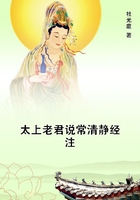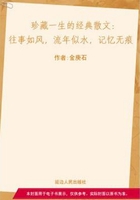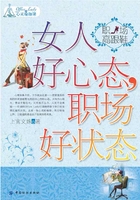"And when they had sung an hymn, they went out into the mount of Olives."--Matthew xxvi. 30.
THE occasion on which these words were spoken was the last meal of which Jesus partook in company with His disciples before He went from them to His shameful trial and His ignominious death. It was His farewell supper before a bitter parting, and yet they needs must sing. He was on the brink of that great depth of misery into which He was about to plunge, and yet He would have them sing "an hymn." It is wonderful that He sang, and in a second degree it is remarkable that they sang. We will consider both singular facts.
I. Let us dwell a while on the fact that Jesus sang at such a time as this. What does He teach us by it? Does He not say to each of us, His followers "_My religion is one of happiness and joy;_
I, your Master, by My example would instruct you to sing even when the last solemn hour is come, and all the glooms of death are gathering around you? Here, at the table, I am your Singing-master, and set you lessons in music, in which My dying voice shall lead you: notwithstanding all the griefs which overwhelm My heart, I will be to you the Chief Musician, and the Sweet Singer of Israel"? If ever there was a time when it would have been natural and consistent with the solemnities of the occasion for the Saviour to have bowed His head upon the table, bursting into a flood of tears; or, if ever there was a season when He might have fittingly retired from all company, and have bewailed His coming conflict in sighs and groans, it was just then. But no; that brave heart will sing "an hymn." Our glorious Jesus plays the man beyond all other men. Boldest of the sons of men, He quails not in the hour of battle, but tunes His voice to loftiest psalmody. The genius of that Christianity of which Jesus is the Head and Founder, its object, spirit, and design, are happiness and joy, and they who receive it are able to sing in the very jaws of death.
This remark, however, is quite a secondary one to the next:
_our Lord's complete fulfilment of the law is even more worthy of our attention_. It was customary, when the Passover was held, to sing, and this is the main reason why the Saviour did so. During the Passover, it was usual to sing the hundred and thirteenth, and five following Psalms, which were called the "_Hallel_." The first commences, you will observe, in our version, with "Praise ye the Lord!" or, "Hallelujah!" The hundred and fifteenth, and the three following, were usually sung as the closing song of the Passover.
Now, our Saviour would not diminish the splendour of the great Jewish rite, although it was the last time that He would celebrate it. No; there shall be the holy beauty and delight of psalmody; none of it shall be stinted; the "Hallel" shall be full and complete. We may safely believe that the Saviour sang through, or probably chanted, the whole of these six Psalms; and my heart tells me that there was no one at the table who sang more devoutly or more cheerfully than did our blessed Lord. There are some parts of the hundred and eighteenth Psalm, especially, which strike us as having sounded singularly grand, as they flowed from His blessed lips. Note verses 22, 23, 24. Particularly observe those words, near the end of the Psalm, and think you hear the Lord Himself singing them, "God is the Lord, which hath shewed us light: bind the sacrifice with cords, even unto the horns of the altar. Thou art my God, and I will praise Thee: Thou art my God, I will exalt Thee. O give thanks unto the Lord; for He is good: for His mercy endureth for ever."
Because, then, it was the settled custom of Israel to recite or sing these Psalms, our Lord Jesus Christ did the same; for He would leave nothing unfinished. Just as, when He went down into the waters of baptism, He said, "Thus it becometh us to fulfil all righteousness," so He seemed to say, when sitting at the table, "Thus it becometh us to fulfil all righteousness; therefore let us sing unto the Lord, as God's, people in past ages have done."
Beloved, let us view with holy wonder the strictness of the Saviour's obedience to His Father's will, and let us endeavour to follow in His steps, in all things, seeking to be obedient to the Lord's Word in the little matters as well as in the great ones.
May we not venture to suggest another and deeper reason? Did not the singing of "an hymn" at the supper show _the holy absorption of the Saviour's soul in His Father's will?_ If, beloved, you knew that at--say ten o'clock to-night--you would be led away to be mocked, and despised, and scourged, and that to-morrow's sun would see you falsely accused, hanging, a convicted criminal, to die upon a cross, do you think that you could sing tonight, after your last meal? I am sure you could not, unless with more than earth born courage and resignation your soul could say, "Bind the sacrifice with cords, even unto the horns of the altar." You would sing if your spirit were like the Saviour's spirit; if, like Him, you could exclaim, "Not as I will, but as Thou wilt;" but if there should remain in you any selfishness, any desire to be spared the bitterness of death, you would not be able to chant the "Hallel" with the Master. Blessed Jesus, how wholly wert Thou given up! how perfectly consecrated! so that, whereas other men sing when they are marching to their joys, Thou didst sing on the way to death; whereas other men lift up their cheerful voices when honour awaits them, Thou hadst a brave and holy sonnet on Thy lips when shame, and spitting, and death were to be Thy portion.
This singing of the Saviour also teaches us _the whole-heartedness of the Master in the work which He was about to do_.

